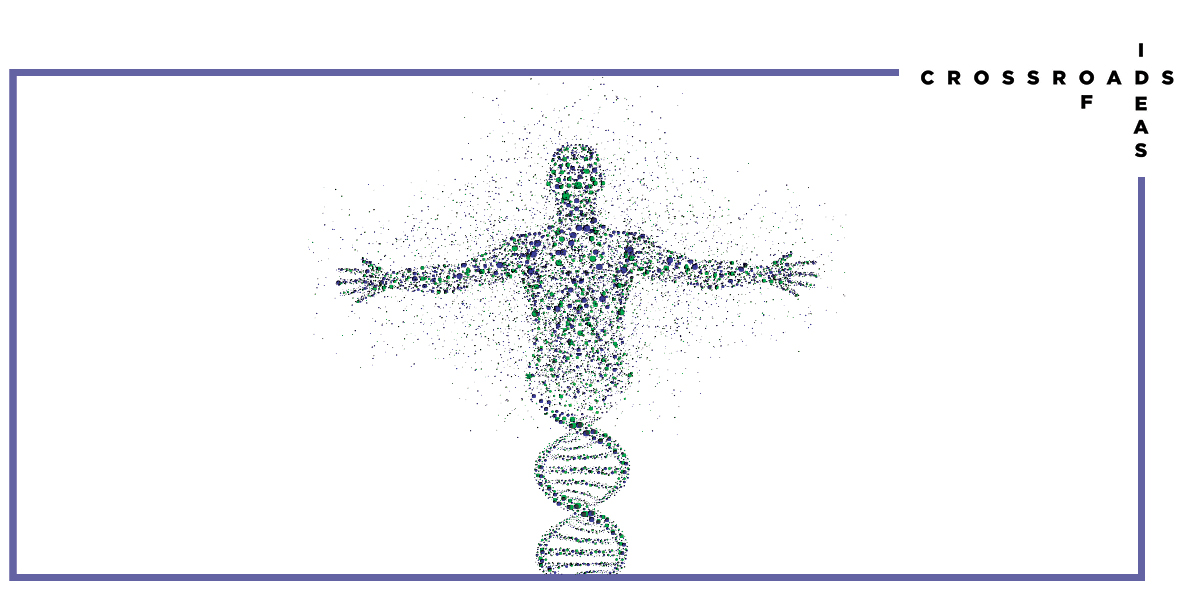Series begins Oct. 12 with ‘What is life?’
CONTACT:
Jeanan Yasiri Moe
Director of Strategic Communications
[email protected] | (608) 960-9892
MADISON, Wis. – Crossroads of Ideas is teaming up with the UW-Madison Institute for Research in the Humanities for a five-part miniseries that examines big topics in philosophy, from free will to happiness, morality and more.
The first installment of the Big Questions series tackles the biggest of them all from the perspectives of a philosopher and a virologist who share an interest in understanding the origins of life. Join us on Tuesday, October 12, at 7 p.m. for an interdisciplinary conversation on the most fundamental topic – what is life itself?
“Philosophers have always been interested in Big Questions — What is life? Do we have free will? What is consciousness? — but recently scientific interest in these questions has surged as well,” says Larry Shapiro, UW-Madison professor of philosophy.
“What can we learn from these very different approaches to the Big Questions? Are philosophy and science more likely to be allies or adversaries? What might each discipline contribute to our understanding of issues central to the human experience? These are the topics that this series of talks aims to examine.”
The October 12 discussion will feature:
- Carol Cleland, philosopher and the director of the Center for the Study of Origins at the University of Colorado-Boulder
- John Yin, UW-Madison chemical engineer, systems biology and virology researcher
- Moderator Eric Wilcots, dean of the UW-Madison College of Letters and Sciences
Steve Nadler, director of UW-Madison’s Institute for Research in the Humanities, says, “This is a wonderful opportunity for the Institute for Research in the Humanities, especially to highlight common areas of research between the humanities and the sciences and to address topics of great relevance for our lives today.”
Other upcoming events in this series include:
- November 9: What is consciousness?
- February 8: What is happiness?
- March 8: What is free will?
- April 5: What is morality?
The Crossroads of Ideas program is a public lecture series that addresses topics that matter to our community and are the subject of research at UW-Madison. The series generally is held in-person at the Discovery Building on the UW campus and is also available via livestream. More at warf.org/crossroads.
“We are once again delighted to be able to partner with a vibrant campus unit to explore questions that matter to all of us and are the subject of inquiry and research at UW-Madison. The Crossroads of Ideas series exists to explore the intersection of community and research interests,” says Laura Heisler, WARF director of programming and curator of the series.
About WARF
The Wisconsin Alumni Research Foundation (WARF) helps steward the cycle of research, discovery, commercialization and investment for the University of Wisconsin-Madison. Founded in 1925 as an independent, nonprofit foundation, WARF manages more than 2,000 patents and an investment portfolio as it funds university research, obtains patents for campus discoveries and licenses inventions to industry. For more information, visit warf.org.
About the Institute for Research in the Humanities
The Institute for Research in the Humanities (IRH) fosters research in the humanities and humanistic social sciences by creating a stimulating, intellectual community in which fellows can pursue their scholarly work, share it with other fellows and members of the campus, and benefit from intensive discussion with scholars from diverse disciplinary backgrounds, fields, interests, and methodological perspectives. For more information, visit irh.wisc.edu.
###
